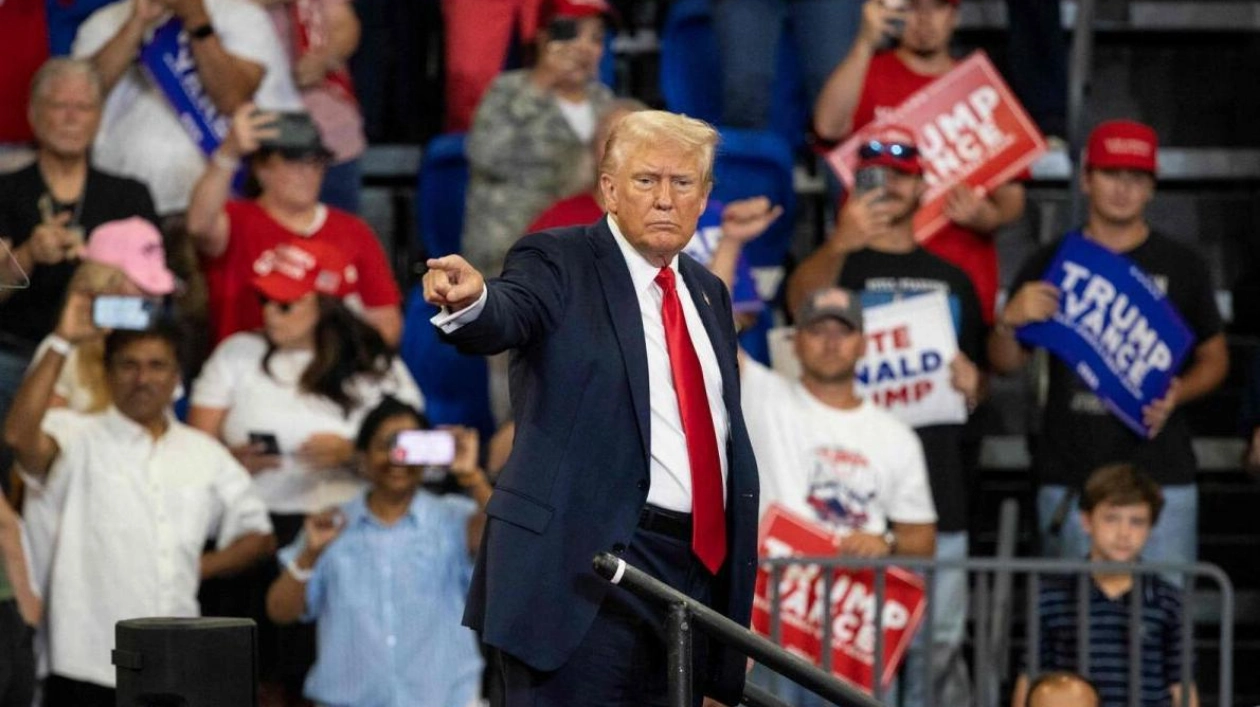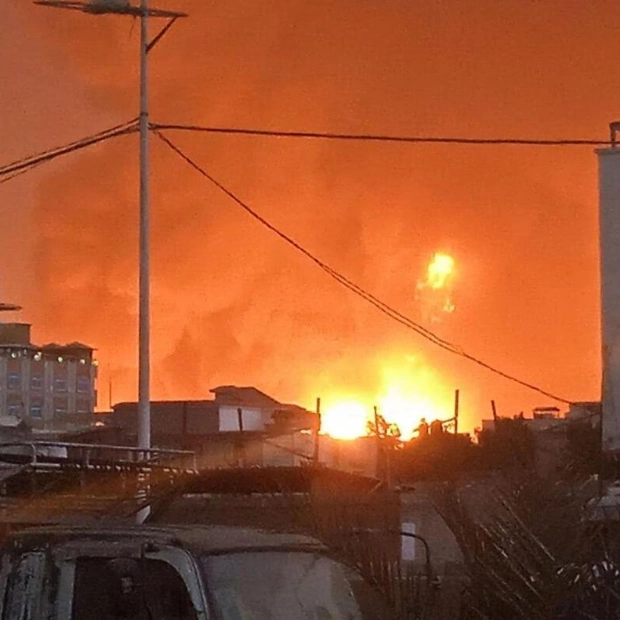A "deepfake" video parodying Kamala Harris, a manipulated expletive-laden clip of Joe Biden, and a doctored image of Donald Trump being arrested -- a surge of AI-driven political disinformation has raised concerns about its potential to influence voters as the US presidential campaign intensifies. As November's election is touted as America's first AI-influenced vote, experts warn that tech-enabled fake content could be employed to sway voters towards or away from candidates, or even deter them from voting, exacerbating tensions in an already highly polarized atmosphere. A recent surge of misinformation has prompted renewed demands for tech giants, who have scaled back on moderating social media content, to enhance safeguards around generative artificial intelligence before the election.
Last week, Elon Musk faced significant backlash for sharing a deepfake video featuring Vice President Harris, the presumed Democratic nominee, with his 192 million followers on X, formerly Twitter. The video, with a voiceover mimicking Harris, accused President Joe Biden of being senile and stated that she had no knowledge of running the country, without any indication that it was a parody, except for a laughing emoji. Musk later clarified that the video was intended as satire, but researchers worried that viewers might mistakenly believe Harris was disparaging herself and Biden.
AFP's fact-checkers have also debunked other instances of AI-generated misinformation. A manipulated video that circulated widely on X seemed to show Biden cursing his critics, including using anti-LGBTQ slurs, after announcing he would not seek re-election and endorsing Harris for the Democratic nomination. A reverse image search revealed that the footage was from a live speech by Biden on PBS, where he condemned political violence following the July 13 assassination attempt on Trump. PBS confirmed that the altered video was a deepfake using its logo to mislead viewers.
Earlier, an image shared across platforms appeared to show police arresting Trump after a New York jury found him guilty of falsifying business records related to a hush money payment to porn star Stormy Daniels. However, digital forensics experts confirmed to AFP that the photo was a deepfake. Lucas Hansen, co-founder of the nonprofit CivAI, noted that these examples illustrate how deepfakes will be used in politics, primarily to incite anger and deepen partisan divisions.
Hansen demonstrated to AFP how an AI chatbot could manipulate voter turnout by generating false tweets. The tool was prompted with "Polling locations charge for parking," customized for Allen, Texas, and quickly produced a tweet falsely claiming a $25 parking fee at most polling places. In another instance, an AI-enabled robocall impersonating Biden discouraged New Hampshire residents from voting in the state's primary.
Tests on another AI tool, Midjourney, allowed the creation of images seeming to show Biden being arrested and Trump next to a body double, according to the nonprofit Center for Countering Digital Hate (CCDH). Despite Midjourney's previous restrictions on prompts related to Trump and Biden, CCDH found that users could bypass these limitations with minor adjustments. Observers warn that widespread use of such fake content could stir public outrage against the electoral process.
Over 50 percent of Americans anticipate AI-enabled falsehoods to influence the 2024 election, according to a poll by Axios and Morning Consult. About one-third of Americans said they would be less trusting of the results due to AI. Several tech giants have announced efforts to label AI-generated content. In April, over 200 advocacy groups urged tech CEOs to intensify efforts against AI falsehoods, including banning deepfakes in political ads and promoting factual election content. The nonprofit Free Press, which signed the letter, expressed disappointment in the lack of substantial commitments from platforms for this election cycle.
Nora Benavidez, senior counsel at the watchdog, highlighted the current toxic online environment where misinformation overwhelms feeds and confuses voters. She emphasized that this is a critical juncture for elections, urging platform executives to urgently strengthen and enforce policies against deepfakes and other issues.






